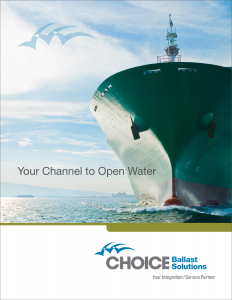 Invasive aquatic species pose a major threat to our oceans through biofouling on ships! At the 80th session of the IMO’s Marine Environmental Protection Committee (MEPC 80) has adopted more stringent guidelines for controlling and managing biofouling on ships. The update to the 2011 Guidelines was undertaken to improve uptake and enforcement and to reduce the threat posed by invasive aquatic species to the well-being of the ocean.
Invasive aquatic species pose a major threat to our oceans through biofouling on ships! At the 80th session of the IMO’s Marine Environmental Protection Committee (MEPC 80) has adopted more stringent guidelines for controlling and managing biofouling on ships. The update to the 2011 Guidelines was undertaken to improve uptake and enforcement and to reduce the threat posed by invasive aquatic species to the well-being of the ocean.
The guidelines primarily focus on operational considerations related to ship design and construction. They provide valuable insights into the selection and installation of an antifouling system (AFS), as well as guidance on the re-installation, re-application, or repair of an AFS.
These guidelines also provide guidance on marine growth prevention systems and establish a schedule for inspections based on a ship’s specific risk profile. Inspections can be performed by competent organizations, crew members, or designated personnel. Inspection frequency or inspection dates (or date ranges) for in-water inspections during the in-service period of the ship would be based on the ship-specific biofouling risk profile, including inspection as a contingency action, and specified in the Biofouling Management Plan (BfMP). The BfMP should also specify management actions to be taken when biofouling is identified during inspections (e.g. cleaning), including changes to inspection frequency. By implementing a comprehensive BfMP, you can minimize biofouling and reduce maintenance costs, while also ensuring compliance with standards set by international and local authorities. At Choice, we understand the importance of sustainable and efficient vessel operations, which is why we are committed to providing tailored BfMP solutions to meet your specific needs.
Additionally, the guidelines outline different cleaning and rating recommendations based on the severity of biofouling as well as updates to information to be included in a biofouling management plan and biofouling management record book.
These biofouling guidelines aim to protect the ocean, but they also recognize the benefits of improved biofouling management. By reducing biofouling, you can enhance a ship’s hydrodynamic performance and increase energy efficiency which also means fewer greenhouse gas emissions – a win for the environment and the performance of the vessel!
Contact us today to learn more about how our BfMP services can benefit your vessel and operations. https://choiceballast.com/contact-us/


